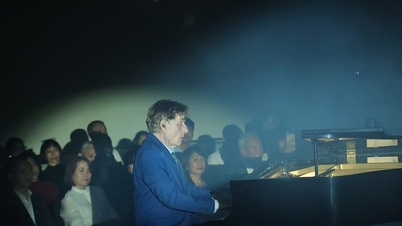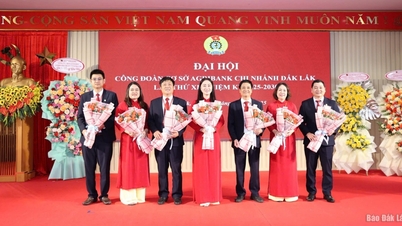"Humanist" of Ho Chi Minh City University of Social Sciences and Humanities promotes cultural behavior between students and students, lecturers and students and vice versa.
What is a "humanist"?
“Humanists” are students, officials, employees and individuals of the University of Social Sciences and Humanities, Ho Chi Minh City. The “Humanists” Code of Conduct regulates dress and behavior at work and study; Behavior during work and study; Behavior in cyberspace; Behavior in public places and places of residence; Behavior of students and behavior of officials and employees.
According to the "Humanist" code of conduct, when working, studying and participating in school activities, humanists must wear modest, polite clothing suitable for the educational environment.
A "humanistic person" must have a serious working and studying style, and use standard and clear language. A "humanistic person" must have a friendly, civilized attitude and respect others. Do not drink alcohol before or during working hours.
In their behavior during study and work, they must strictly comply with the policies of the Party and the State, and the regulations of the school. "Humanistic people" have self-awareness, self-study and are proactive in studying and working. In addition, they must build and develop a sense of community service, spreading good social values. For visitors and business guests... "humanistic people" must be gentle, open, polite when communicating, sharing, helping, and guiding to solve problems within their ability.
"Humanists" respect differences
The two main subjects in the university are the lecturer and the student. The "humanist" has set the rules for these two subjects.
Accordingly, learners must use appropriate language, be friendly, united, cooperative, and supportive of each other in studying, researching, training, and serving the community. Learners respect teachers, service staff, and respect the differences of each individual.

In particular, learners must not create and spread false information that insults the honor, dignity and reputation of individuals, agencies, organizations and groups; must not participate in, incite or entice others to participate in illegal activities.
Meanwhile, humanities lecturers must also use appropriate language in communication and behavior; no language or behavior that offends others. Lecturers must listen, discuss and coordinate in the process of performing work to solve work effectively, no behavior or language that affects the reputation and honor of others.
In addition, they themselves must be conscious of preserving the honor and ethics of teachers; respect and protect the reputation, honor and dignity of themselves and others; be willing to help and protect the legitimate and legal rights and interests of themselves and individuals, agencies, organizations and unions; have a spirit of cooperation and mutual assistance, not causing difficulties or troubles when performing tasks; not causing factions or internal disunity in agencies, organizations and unions.
Why is there a "humanitarian" rule?
The “Humanist” code of conduct of the University of Social Sciences and Humanities, Ho Chi Minh City, has received many positive responses from students. On the school’s fanpage, students believe that in the current context, “Humanist” is reasonable and appropriate in building a school culture of conduct.
The Code of Conduct applies to students, staff and employees of the school.
The University of Social Sciences and Humanities said that the reason the school issued this code of conduct was to regulate the behavior of students, officials and employees of the school in accordance with social ethical standards, national customs and traditions, local cultural characteristics and practical conditions of the school.
On the other hand, this also contributes to building office culture and school culture; ensuring a safe, healthy and friendly educational environment; ensuring integrity and professionalism, consistent with the responsibilities and obligations of learners, civil servants and employees.
Third is to prevent and promptly and effectively handle negative and uneducated behaviors in schools.
In addition, this is also the basis for monitoring and evaluating compliance with the code of conduct of learners, civil servants and employees; and is the basis for considering and deciding on assessment, classification, rewards and discipline of learners, civil servants and employees according to the provisions of law.
Source: https://vietnamnet.vn/doc-dao-ung-xu-nguoi-nhan-van-cua-truong-nhan-van-2346156.html






![[Photo] Cutting hills to make way for people to travel on route 14E that suffered landslides](https://vphoto.vietnam.vn/thumb/1200x675/vietnam/resource/IMAGE/2025/11/08/1762599969318_ndo_br_thiet-ke-chua-co-ten-2025-11-08t154639923-png.webp)














![[Video] University of Foreign Languages - Vietnam National University, Hanoi received the First Class Labor Medal](https://vphoto.vietnam.vn/thumb/402x226/vietnam/resource/IMAGE/2025/11/08/1762614378165_gen-h-z7203450341291-b1f427bb0cccc706a5bcc4b985f90a70-7234-jpg.webp)























![[Video] Hue Monuments reopen to welcome visitors](https://vphoto.vietnam.vn/thumb/402x226/vietnam/resource/IMAGE/2025/11/05/1762301089171_dung01-05-43-09still013-jpg.webp)

































































Comment (0)